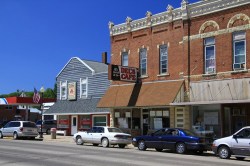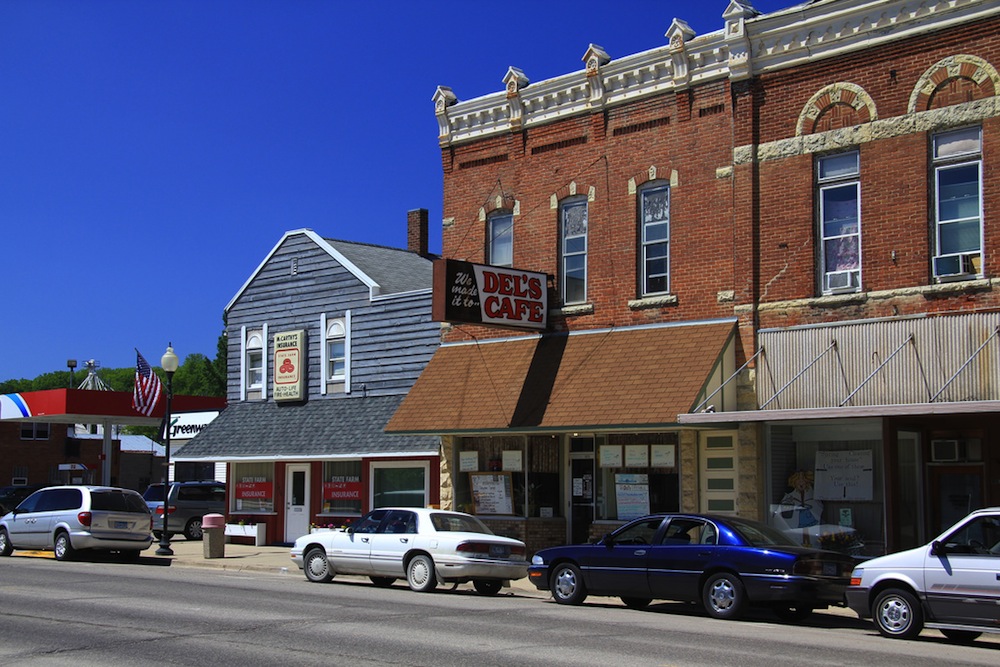
MuladThe main strip in the city of St. Charles, Minn.
The fracking industry can’t seem to buy itself any love.
While lawmakers in New York, Vermont, Fort Collins, Colo., and elsewhere consider or implement bans on hydraulic fracturing, companies that mine the sand that’s used by frackers are also finding themselves rejected. And dejected.
Minnesota Proppant is one such company. It wanted to open one of the world’s largest frac-sand processing and rail-loading facilities in St. Charles Township in rural southeastern Minnesota (population 629). Sand in that area is highly prized by the fracking industry: It is just the right size and strength to be pumped with water and chemicals at high pressure into gas-rich shale, where it wedges into cracks that are opened up and holds them open, allowing natural gas to escape.
Unfortunately for the company, townsfolk weren’t too keen on the pollution it was expected to produce. Nor were they thrilled that well water would be liberally pumped out of the ground by the miners. Concerns were raised about lung diseases that could be caused by airborne silica. And they worried that the local tourism industry could take a hit.
Do you suppose company officials took a hint and moved on?
They did not.
Instead, the company looked to the next city over. It promised abundant jobs and economic progress to the city of St. Charles (population 3,735) if lawmakers there would just annex the potential sand-mining land into city limits, and permit the proposed mine to open.
But on Tuesday evening, the city council rejected that proposal. From the Star Tribune:
Mayor Bill Spitzer said the issue was tearing the community apart. His biggest reason for saying “no” to the project, he said, was to stay on good terms with the township. “Once you start destroying relationships, you can’t move forward,” Spitzer said.
What Spitzer perhaps didn’t realize was that his city’s move would destroy other relationships — those precious relationships of onetime business partners who had joyously come together to scoop sand out of the ground so it could be sold to frackers. From a followup story in the Star Tribune:
The collapse of a major frac sand proposal in Winona County has caused a split among investors in the project, with one faction pulling out in frustration over Minnesota’s anti-frac sand sentiment.
“Me and my partners split up. They went to Wisconsin,” said Rick Frick, one of two remaining principals in Minnesota Proppant LLC. “Were they fed up? Yes, that had a lot to do with it.”
Wisconsin, he said, has embraced the industry more warmly than Minnesota has — to the point where some communities are “tickled pink” about upswings in jobs and taxes. In the past four years, the nation’s oil and gas fracking boom, which relies on silica sand as a main drilling ingredient, has coincided with the permitting of almost 100 new mining facilities in Wisconsin.
Take it easy there, buddy. Not everybody in Wisconsin loves your kind. Just last month the town of Bridge Creek, Wis., rejected plans to open a similar frac sand mine there.




